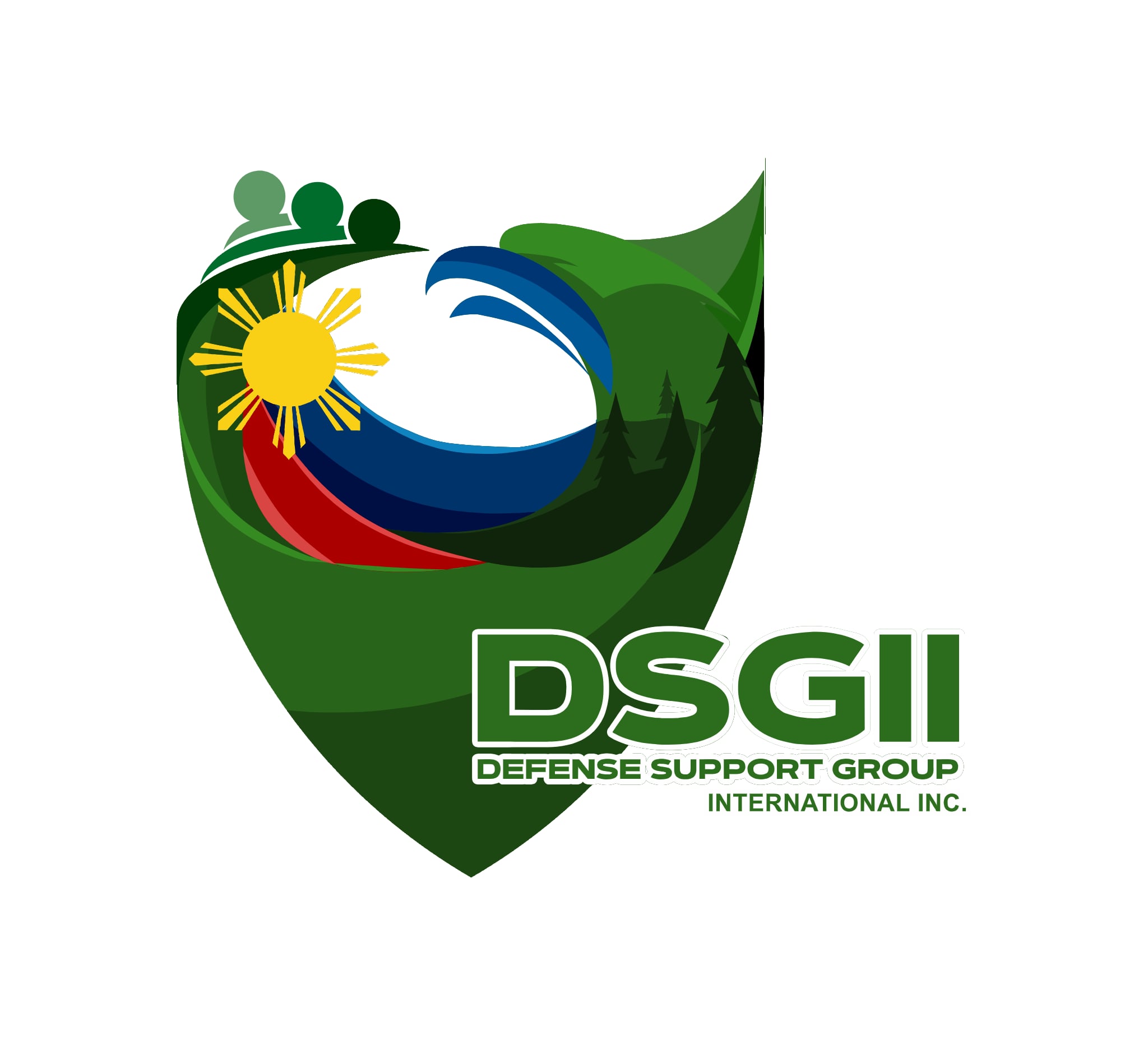2.3.6 Program Manager (Thematic)
- Role: Responsible for the direct management, implementation, monitoring, and evaluation of specific thematic programs (e.g., Community Resilience, Sustainable Livelihoods, Youth & Women Empowerment, Local Governance & CBO Strengthening). Reports to the Head of Programs.
- Responsibilities: Develop detailed work plans; manage program-specific budgets; lead and supervise field teams; ensure effective community engagement and participatory approaches; prepare technical and progress reports; identify program challenges and propose solutions.
2.3.7 Field Officers / Specialists / Coordinators
- Role: Frontline staff responsible for direct engagement with target communities, facilitating activities, providing technical assistance, and gathering ground-level data. Report to their respective Program Managers.
- Responsibilities: Conduct community consultations; organize and facilitate workshops and training sessions; monitor project activities at the community level; provide direct support to beneficiaries (e.g., farmers, youth groups); collect and report data; build relationships with local stakeholders.
2.3.8 Head of Finance & Administration
- Role: Manages all financial operations and oversees administrative functions, ensuring compliance, efficiency, and sound financial management. Reports to the Executive Director.
- Responsibilities: Develop and oversee financial policies and procedures; manage organizational budgets and cash flow; ensure accurate accounting and financial reporting; oversee procurement and logistics; manage office infrastructure and assets; ensure compliance with donor financial regulations.
2.3.9 Head of Human Resources (HR)
- Role: Manages all human resources functions, fostering a supportive work environment and ensuring DSGII has the right talent to achieve its mission. Reports to the Executive Director.
- Responsibilities: Oversee recruitment, onboarding, and retention; manage compensation and benefits; implement performance management systems; facilitate staff training and development; manage employee relations and grievances; ensure compliance with Philippine labor laws and DSGII’s HR policies (Section 7.3 HR Management).
2.3.10 Head of Monitoring, Evaluation & Learning (MEL)
- Role: Develops and implements DSGII’s MEL framework, ensuring robust data collection, analysis, and utilization for accountability, learning, and program improvement. Reports to the Executive Director.
- Responsibilities: Design MEL plans and tools; oversee data collection and management; conduct evaluations and assessments (baseline, mid-term, end-line); analyze program performance and impact; facilitate learning events; ensure data informs program adjustments and strategic planning.
2.3.11 Head of Communications & Partnerships
- Role: Leads external communications, brand management, stakeholder engagement, and resource mobilization efforts. Reports to the Executive Director.
- Responsibilities: Develop and implement communication strategies; manage public relations and media engagement; cultivate and maintain relationships with existing and potential donors and partners; lead proposal development and fundraising campaigns; oversee external representation and advocacy initiatives.
These roles and responsibilities collectively ensure that DSGII operates as a cohesive, accountable, and impactful organization, dedicated to its mission of empowering Filipino communities in the Ilocos Region.
- 2.3 Board of Directors: Roles, responsibilities, election process, meeting protocols.
The Board of Directors (referred to as “Board of Trustees” for non-stock, non-profit corporations in the Philippines, as per the Revised Corporation Code) is the supreme governing body of DSGII (Defense Support Group International Inc.). It holds the ultimate legal and fiduciary responsibility for the organization’s mission, assets, and operations.
2.4.1 Composition and Structure:
- Number of Trustees: As per Philippine law for non-stock corporations, the Board shall be composed of at least five (5) but not more than fifteen (15) Trustees. DSGII aims for a Board size of [e.g., 7-9] to ensure diverse expertise while maintaining efficiency in decision-making.
- Qualifications: Trustees are selected based on their commitment to DSGII’s Vision, Mission, and Values (Section 2.1), relevant expertise (e.g., development, finance, law, community organizing, disaster risk reduction, public health, agriculture), strong ethical standing, and ability to contribute time and resources. All Trustees must be members of the corporation.
- Diversity: DSGII strives for diversity in its Board composition, including representation from various backgrounds, professions, and potentially geographic areas relevant to its operations in the Ilocos Region.
- Term of Office: Trustees shall serve for a term of [e.g., three (3) years], with staggered terms to ensure continuity of institutional knowledge. Trustees may be eligible for re-election for a maximum of [e.g., two consecutive terms] to encourage fresh perspectives while retaining experienced leadership.
- Officer Positions: The Board shall elect officers from among its members, typically including a Chairperson, Vice-Chairperson, Secretary, and Treasurer, as mandated by the organization’s By-laws.
2.4.2 Roles and Responsibilities (Detailed):
Building on the overview in Section 2.3.1, the Board’s responsibilities include:
- Strategic Governance:
- Review, approve, and regularly monitor the organization’s Vision, Mission, and Values (Section 2.1) and the multi-year Strategic Plan (Section 6.1).
- Ensure that all organizational activities and programs are aligned with DSGII’s core purpose and serve the best interests of its beneficiaries and the Filipino people.
- Actively participate in and champion DSGII’s mission, serving as ambassadors for the organization.
- Fiduciary Responsibility:
- Approve the annual budget and review regular financial reports, ensuring financial stability, transparency, and the responsible stewardship of funds (Section 7.4 Financial Management).
- Oversee the annual external audit process and approve the audited financial statements.
- Ensure compliance with all tax regulations and donor requirements.
- Approve major financial transactions, investments, and asset disposal as per organizational policy.
- Executive Leadership Oversight:
- Appoint, supervise, evaluate, and provide guidance and support to the Executive Director.
- Set the Executive Director’s compensation and performance targets.
- Ensure effective leadership succession planning.
- Policy and Compliance:
- Approve and periodically review all critical organizational policies, including those related to Human Resources, Finance, Programs, and Risk Management, as outlined in the Operations Manual (Section 7.0).
- Ensure strict adherence to all legal requirements for non-stock, non-profit corporations in the Philippines (Section 1.2 Legal Identity and Registration and Section 7.8 Legal & Compliance).
- Uphold the organization’s Code of Conduct and Ethics (Section 3.2.1), ensuring a culture of integrity and accountability.
- Resource Mobilization:
- Actively engage in fundraising and resource mobilization efforts by leveraging personal networks, identifying potential donors, participating in donor meetings, and promoting DSGII’s work.
- Endorse grant proposals and cultivate relationships with funding partners.
- Risk Management:
- Oversee the establishment and implementation of a comprehensive risk management framework, identifying key risks (operational, financial, reputational, legal) and approving mitigation strategies (Section 7.7 Risk Management).
2.4.3 Board Meetings:
- Frequency: The Board shall hold at least [e.g., four (4) regular meetings annually], typically on a quarterly basis, as stipulated in the By-laws. Special meetings may be called as needed by the Chairperson or a majority of the Trustees.
- Quorum: A majority of the total number of Trustees shall constitute a quorum for the transaction of business.
- Minutes: Detailed minutes of all Board meetings shall be recorded by the Corporate Secretary, approved by the Board, and maintained as official organizational records.
- Decision-Making: Decisions are made by a majority vote of the Trustees present at a duly constituted meeting.
2.4.4 Board Committees:
To enhance its oversight capacity and efficiency, the Board may establish standing or ad-hoc committees. Typical committees include:
- Executive Committee: (Optional) Handles urgent matters between Board meetings, provides immediate guidance to the Executive Director.
- Finance and Audit Committee: Oversees financial reporting, internal controls, external audits, and financial compliance.
- Program and Impact Committee: Reviews program performance, ensures alignment with mission, and advises on new program development and evaluation.
- Governance and Nominations Committee: Oversees Board composition, recruitment of new Trustees, performance evaluation of the Board and individual Trustees, and ensures adherence to governance best practices.
- Resource Mobilization Committee: Supports fundraising strategies, donor engagement, and ensures the financial sustainability of the organization.
The Board of Directors is fundamental to DSGII’s credibility, strategic direction, and overall success in driving sustainable development and resilience across the Ilocos Region.
- 2.4 Executive Management Team: Functions, decision-making authority, accountability.
The Executive Management Team (EMT) serves as the primary operational leadership body of DSGII (Defense Support Group International Inc.). Chaired by the Executive Director, the EMT is responsible for translating the Board’s strategic vision into actionable plans and ensuring the efficient and effective day-to-day management of the organization. It is the central coordination point for all programmatic and support functions.
2.5.1 Composition:
The EMT is comprised of the heads of DSGII’s core functional departments, ensuring representation from all critical areas of operation. The current composition includes:
- Executive Director (Chairperson)
- Head of Programs
- Head of Finance & Administration
- Head of Human Resources
- Head of Monitoring, Evaluation & Learning (MEL)
- Head of Communications & Partnerships
The Internal Auditor and Executive Assistant typically participate in EMT meetings when relevant to their functions or to provide support, but are not usually voting members.
2.5.2 Roles and Responsibilities:
The EMT’s collective responsibilities are crucial for the seamless operation and strategic progression of DSGII:
- Operational Leadership and Management:
- Oversee the day-to-day operations of all departments and programs, ensuring smooth workflow and efficient resource allocation.
- Ensure the timely and quality implementation of all program activities in line with work plans and budgets.
- Address cross-cutting operational issues and inter-departmental coordination challenges.
- Strategic Implementation and Monitoring:
- Develop detailed annual operational plans and budgets based on the Strategic Plan 2025-2028 (Section 6.1).
- Regularly review progress against strategic goals and key performance indicators (KPIs).
- Identify emerging trends, opportunities, and challenges relevant to DSGII’s mission and adapt operational strategies accordingly.
- Financial Management and Resource Utilization:
- Monitor overall financial performance against budget, ensuring fiscal prudence and sustainability.
- Review and approve significant expenditures and contracts within delegated authority limits.
- Contribute to and support the organization’s Resource Mobilization and Sustainability Strategy (Section 7.6).
- Policy Implementation and Compliance:
- Ensure the effective implementation of all approved organizational policies (HR, finance, procurement, program management, etc.) as detailed in the Operations Manual (Section 7.0).
- Uphold legal and regulatory compliance and adherence to ethical standards (Section 7.8 Legal & Compliance).
- Promote a culture of integrity, accountability, and professional conduct across the organization.
- Risk Management:
- Proactively identify, assess, and develop mitigation strategies for operational, programmatic, financial, and reputational risks (Section 7.7 Risk Management).
- Ensure the development and regular review of safety and security protocols, especially for field operations.
- Team Development and Communication:
- Foster a collaborative, transparent, and high-performing work environment for all staff.
- Ensure effective internal communication flows from leadership to all levels of the organization.
- Support staff development and well-being initiatives.
- Reporting to the Board:
- Prepare and present comprehensive operational, programmatic, and financial reports to the Board of Directors at regular intervals.
- Provide strategic recommendations and seek Board approvals on critical organizational matters.
2.5.3 Meetings and Decision-Making:
- Frequency: The EMT holds regular meetings, typically on a weekly or bi-weekly basis, to review performance, address operational challenges, make timely decisions, and ensure inter-departmental alignment.
- Agenda: Meeting agendas are prepared by the Executive Assistant in consultation with the Executive Director and other EMT members, focusing on strategic progress, operational bottlenecks, financial health, and team coordination.
- Decision-Making Process: Decisions within the EMT are primarily made by consensus, fostering collective ownership and commitment. In cases where full consensus cannot be reached, the Executive Director holds the final decision-making authority, after considering all inputs.
- Documentation: Minutes of EMT meetings are formally recorded to document decisions, action points, and assigned responsibilities.
The Executive Management Team is vital to DSGII’s ability to effectively deliver on its mission, adapt to changing circumstances, and ensure that its programs genuinely empower the vulnerable communities in the Ilocos Region.
- 2.5 Committees and Working Groups: Terms of reference for internal committees (e.g., HR, Finance, Program Review).
To enhance governance, facilitate specialized oversight, and promote cross-functional collaboration, DSGII (Defense Support Group International Inc.) establishes both Board-level Committees and internal Management/Staff Working Groups. These structures ensure dedicated focus on critical areas and enable more efficient decision-making and implementation.
2.6.1 Board-Level Committees
These are sub-committees of the Board of Directors, comprised primarily of Board members, sometimes augmented by external experts or senior management (in a non-voting capacity). They assist the full Board in fulfilling its oversight responsibilities in specific areas. Each committee operates under a clear Terms of Reference (TOR) approved by the full Board.
- Purpose: To provide detailed oversight, conduct in-depth reviews, and make recommendations to the full Board on matters requiring specialized attention. They do not have executive authority unless explicitly delegated by the Board in the By-laws or a specific resolution.
- Common Board Committees for DSGII:
- Finance and Audit Committee:
- Composition: At least three (3) Trustees, preferably with financial or accounting expertise, including the Board Treasurer.
- Key Responsibilities: Oversee DSGII’s financial health and integrity; review annual budgets and financial statements; monitor internal controls; coordinate with external auditors; ensure compliance with financial regulations and donor requirements.
- Reporting: Reports to the full Board on a quarterly basis and as needed.
- Governance and Nominations Committee:
- Composition: At least three (3) Trustees, including the Board Chairperson.
- Key Responsibilities: Oversee Board effectiveness and composition; identify, vet, and recommend new Trustee candidates; review and recommend amendments to the By-laws and governance policies; oversee Board and Executive Director performance evaluations; ensure adherence to ethical standards.
- Reporting: Reports to the full Board annually and as needed.
- Program and Impact Committee:
- Composition: At least three (3) Trustees, ideally with development, community engagement, or relevant sector expertise, along with the Head of Programs (non-voting).
- Key Responsibilities: Review program strategies and performance against the Strategic Plan (Section 6.1); ensure program quality and relevance to beneficiary needs; review MEL reports and learning outcomes; advise on program development and innovation.
- Reporting: Reports to the full Board quarterly.
- Resource Mobilization Committee:
- Composition: At least three (3) Trustees, including individuals with fundraising or networking experience, and the Head of Communications & Partnerships (non-voting).
- Key Responsibilities: Support and advise on DSGII’s fundraising strategy; assist in identifying and cultivating potential donors; leverage networks for resource mobilization; review fundraising performance and targets.
- Reporting: Reports to the full Board quarterly.
- Finance and Audit Committee:



